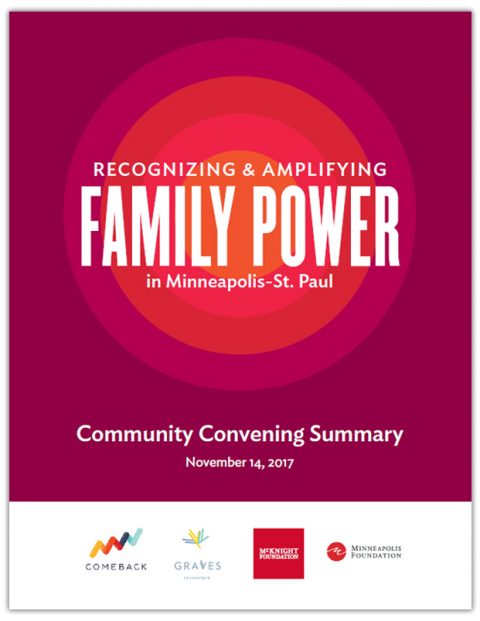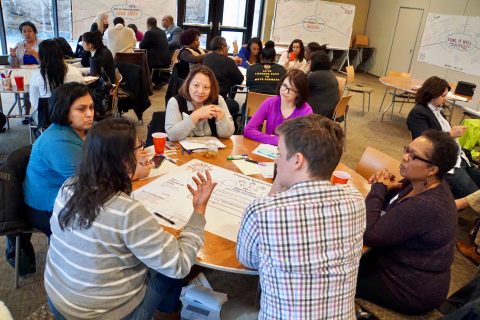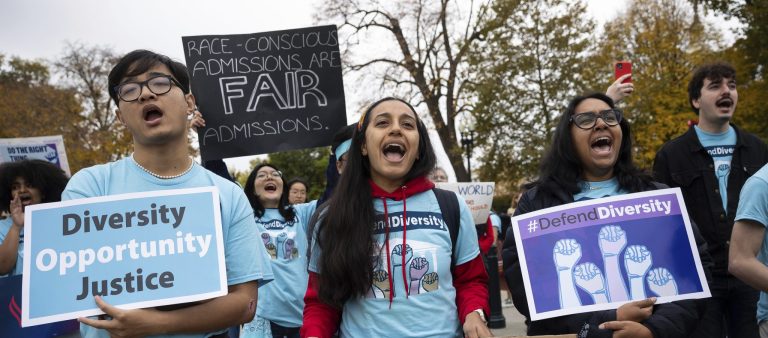
How do families define family engagement in education? As embracing “the power of people to change systems, not the other way around.” Or in other words, shifting decisionmaking power toward families and communities.
That’s a theme we heard from the nearly 30 community partners we gathered last November to explore the topic of family engagement, and to advise our collective organizations about how philanthropy can support this goal.
These partners encouraged us to focus our efforts on building family power to advocate for systems change at the school, district, and state levels—and thereby improve equity, opportunity, and outcomes for Minnesota’s kids. As millennials and as  funders at MN Comeback, the J. D. Graves Foundation, the Minneapolis Foundation, and the McKnight Foundation, we’ve reflected on how this advice might influence our respective work.
funders at MN Comeback, the J. D. Graves Foundation, the Minneapolis Foundation, and the McKnight Foundation, we’ve reflected on how this advice might influence our respective work.
Today, we’re excited to share all the themes that emerged from the convening to inform a broader community conversation about family engagement. The new report, Recognizing & Amplifying Family Power in Minneapolis-St. Paul, reflects the wisdom of our partners, who told us to:
- Put families first by recognizing parents as experts and supporting parent-informed, parent-led systems change.
- Recognize that context matters by grounding change efforts in the specific culture(s) of a community and ensuring a commitment to equity.
- Remember that change is multilayered by balancing the urgent need to act with a commitment to long-term engagement and attending to the human aspect of systems change.
We think the participants themselves articulate these themes best. They gave us this advice:
-
- “Use the word SEE. Some parents feel invisible. Make sure we are using it in this work as we talk about children’s education.”
- “Think outside the box in improving education systems. We are otherwise limiting ourselves to repeat the same problems and mistakes.”
- “Establish a decisionmaking structure to give real power to families in school communities.”

We hope you’ll read the full report, which includes more powerful insights, as well as the complete list of participating organizations. We’re extremely grateful to the three organizers—Roberto de la Riva Rojas from Inquilinxs Unidxs Por Justicia, Veronica Mendez Moore from Centro de Trabajadores Unidos en la Lucha, and Nelima Sitati Munene from African Career and Education Resource, Inc.—and all the community partners who shared their wisdom with us.
As funders, we commit to continuing to learn together about how to best recognize and amplify the power of families and communities to transform education systems. We hope this document and the spirit of the convening ignite similar reflection for readers.
Rashad Turner is a former Black Lives Matter St. Paul organizer who serves as the director of community engagement for MN Comeback. Bill Graves is a former technology and creative consultant who serves as the president of the Graves Foundation. DeSeandra Sheppheard is a former human resources and organizational development consultant who serves as the director of grants and operations at the Graves Foundation. Erin Imon Gavin is a former teacher who serves as education program director at the McKnight Foundation. Patrice Relerford is a former Star Tribune journalist who serves as the director of impact strategy for education at the Minneapolis Foundation.
The authors wish to thank Latosha Cox, McKnight’s education program assistant, for her engagement in planning and supporting the community convening.


